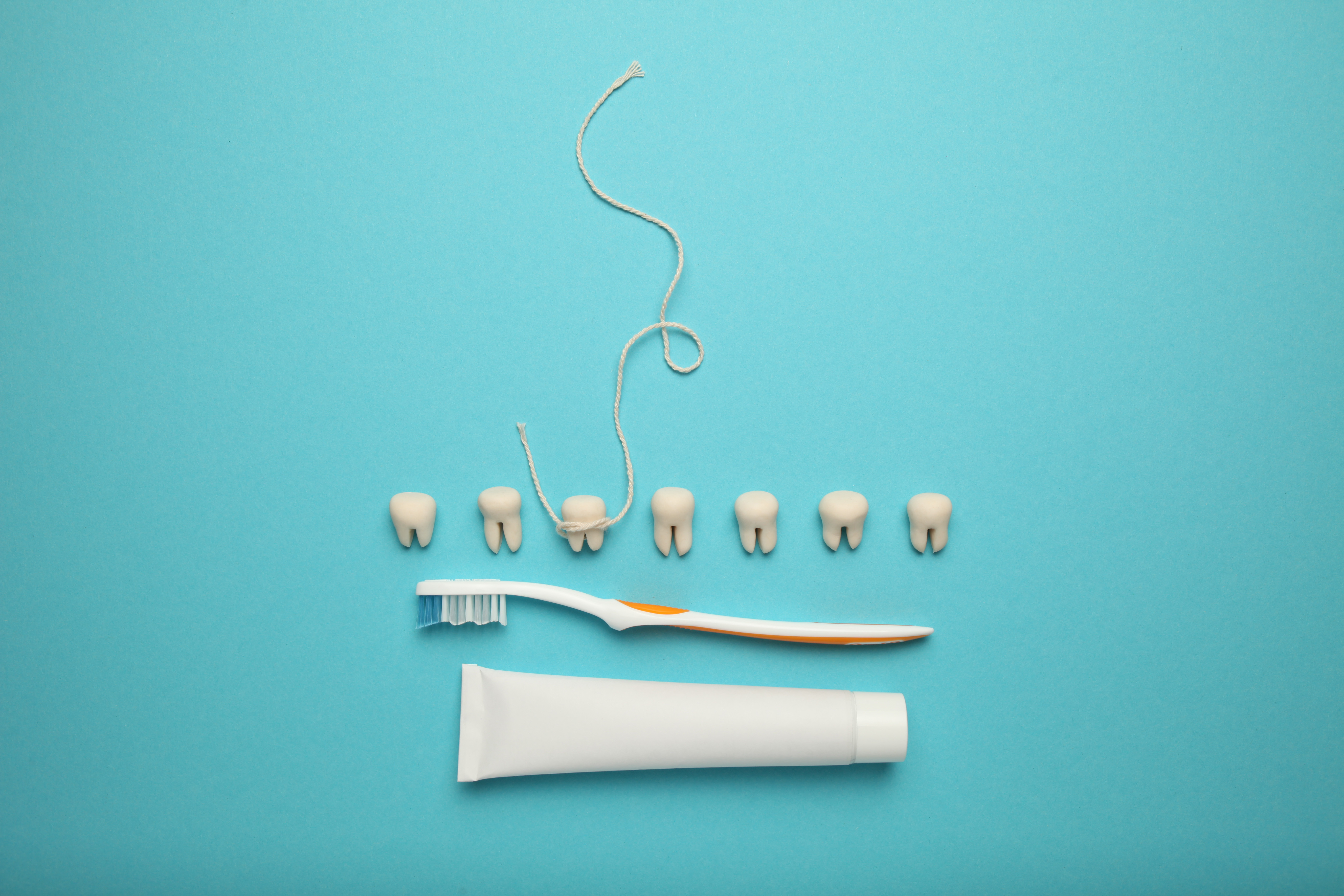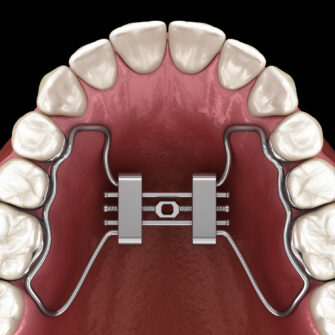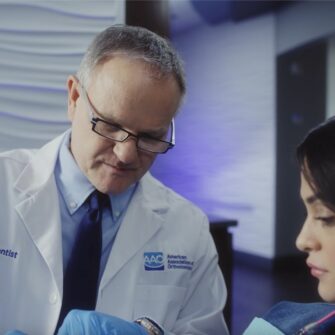If someone tells you that your child should have all of his/her permanent teeth before visiting the orthodontist for the first time, that “someone” is incorrect . In fact, putting off a first visit to the orthodontist until all of a child’s permanent teeth are in could do more harm than good. Here’s why:
There’s a lot more going on than meets the eye.
A child’s mouth is a busy place. Think about a 6-year-old. Everything is growing, including the bones in the jaw and face. At around age 6, the first permanent molars appear. An exchange of teeth begins as baby teeth fall out and are replaced by larger-sized permanent teeth. And it all happens in a predictable, particular order. Unless it doesn’t.
The gums hide about two-thirds of each tooth, as well as all the bone that hold teeth in place. The gums can mask conditions that interfere with the emergence of teeth.
Parents can watch for clues. Early or late loss of baby teeth can signal a problem. So can trouble with chewing or biting, speech difficulties and mouth-breathing. If these indicators are not addressed until a child has all of his/her permanent teeth and growth is essentially complete, correcting the problem may be more difficult than it might have been had treatment occurred earlier.
Orthodontic treatment is about creating a healthy bite – the beautiful smile is a bonus.
The goal of orthodontic treatment is to make sure the bite is right – that upper and lower teeth fit together like interlocking gears. The timing of your child’s treatment is critical and is based on his/her individual needs.
Some children can wait until they have all or most of their permanent teeth. Other children’s orthodontic problems may be better treated while some baby teeth are present. These children require growth guidance of bones in the upper and lower jaws, so there’s enough room for permanent teeth. Their treatment can be timed to predictable stages of dental development and physical growth. Once teeth and jaws are in alignment, a beautiful smile is the bonus result of treatment.
Dentists and orthodontists look at the mouth differently.
Both doctors work in the mouth. But perspectives differ based on the care they provide.
Dentists assess and promote overall oral health. They look for cavities and gum disease. They advise patients on diet and home hygiene care. And they monitor patients for diseases that appear in or affect the mouth. Dentists take “bite wing” x-rays to isolate a particular section of teeth as part of their diagnosis and treatment planning process. Orthodontic evaluations may be a lower priority for dentists.
Orthodontists are laser-focused on each patient’s bite. Orthodontists use “panoramic” x-rays to visualize all of the teeth above and below the gums, and the jaws, all at once. The bite is orthodontists’ area of specialization.
If your dentist has not referred your child to an orthodontist, you need not wait for a referral. Orthodontists do not require a referral for your child to be seen.
Here’s what the experts say: remember age 7.
The American Association of Orthodontists (AAO) recommends that children have their first visit with an orthodontist no later than age 7. If a problem is detected and treatment is advised, you are giving the orthodontist the opportunity to provide your child with the most appropriate treatment at the most appropriate time.
To answer the question that headlines this blog, there’s no need to wait until your child has lost all his/her baby teeth before you consult an orthodontist. It’s fine to talk to an orthodontist as soon as you suspect a problem in your child, even if your child is younger than 7. Many orthodontists offer a free or low-cost initial consultation. And adults – there’s no time like the present to talk to an orthodontist about getting the smile you’ve always wanted. Locate AAO orthodontists through Find an Orthodontist.



